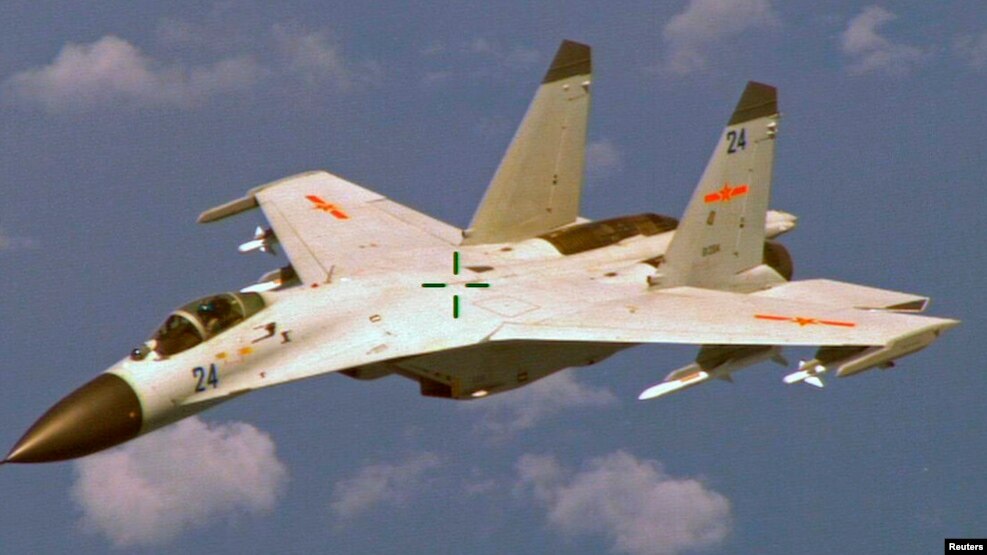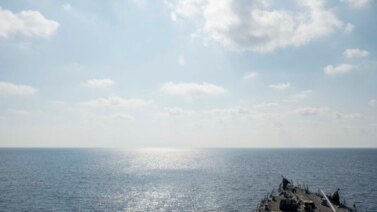
China is telling the United States military to stop gathering intelligence along China's coast after an incident involving aircraft from the two countries.
The U.S. Defense Department described an “unsafe” meeting between a U.S. military airplane and two Chinese fighter jets. It said the Chinese jets intercepted the plane on a routine patrol Tuesday in international airspace over the South China Sea.
A Chinese foreign ministry official said the jets followed and observed the U.S. plane “in accordance” with international law.
Foreign Ministry spokesman Hong Lei said the Chinese aircraft “continually kept a safe distance and did not take any dangerous actions.” He said the intercept took place near China's southern province of Hainan, and that it was a “serious threat” to Chinese airspace.
The incident comes at a time of growing concern in East Asia over China's territorial claims.
China claims most of the South China Sea. But Brunei, Malaysia, the Philippines, Taiwan and Vietnam also have claims to parts of the sea. China has been developing artificial islands in the disputed waters, complete with runways and military bases.
Earlier this month, China ordered fighter jets into the air after a U.S. Navy ship sailed close to a disputed area in the South China Sea. Two Chinese fighter jets and three warships followed the U.S. ship and told it to leave the area.
Tensions over the competing territorial claims are expected to be discussed during U.S. President Barack Obama's visit to Asia.
Obama will become the first U.S. president to visit Hiroshima, Japan, where the United States carried out the world's first atomic bomb attack at the end of World War II. He will also visit Vietnam.
Some observers believe the incident on Tuesday is not directly related to tensions over the South China Sea.
William Choong is a senior fellow at the International Institute for Strategic Studies in Singapore. He said the Chinese government's reaction seems to be part of a dispute over military surveillance flights.
I'm Bryan Lynn.
Bill Ide reported this story for VOANews.com. Bryan Lynn adapted the report for Learning English. George Grow was the editor.
We want to hear from you. Write to us in the comments, and post on our Facebook page.
Words in This Story
surveillance - n. close observation of something, especially a suspected spy or criminal
intercept - v. to stop and take someone or something from one place to another
monitor - v. to observe and check the progress or quality of something
artificial - adj. made or produced by humans rather than occurring naturally
vessel - n. a ship or large boat
maritime - adj. relating to the sea, especially relating to commercial or military activity
routine - adj. done very often; done or happening as part of a normal job
patrol - n. the act of moving through an area to make sure it is safe


